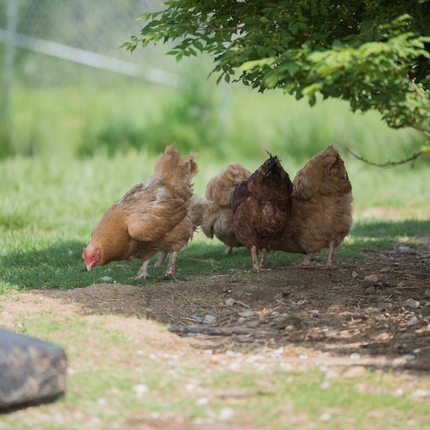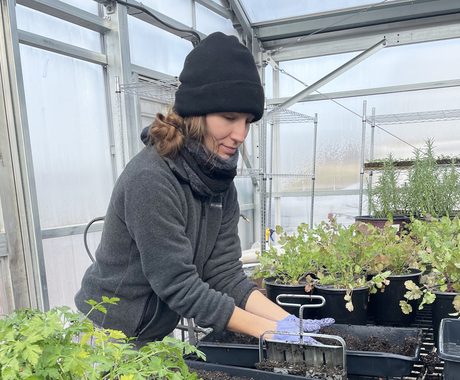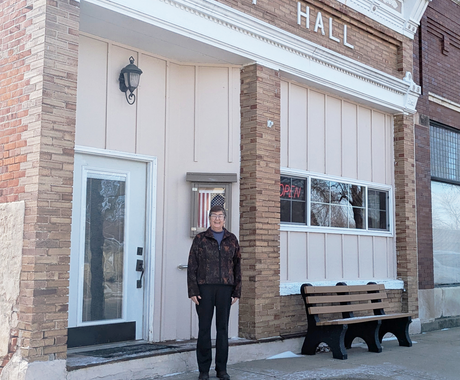Para la versión en español de esta historia, por favor oprima aqui.
Before this spring’s flooding in Fremont, Nebraska, Hilda Moreno’s small family farm business was thriving.
Her 13-year-old son, Carlos, owns an egg business where he had customers on a waiting list because the business was booming. His plans were to add broiler chickens to his existing enterprise. Carlos, who is always thinking of ways to diversify, such as selling goose and duck eggs, was eager to grow his business.
This drive is what led him to persuade his mom to attend the Center for Rural Affairs’ workshops to learn as much as she could so she could train Carlos on how to better market his business. Through the Center, Hilda attended workshops focused on production, budgeting, soil health, and marketing.
Center staff also introduced Hilda to Karna Dam at the local 4-H extension office. Karna had been wanting to hold youth business classes in Fremont, especially for Latino youths. A month later, Hilda enrolled her two sons in the very first Latino youth business classes in Fremont. Those classes gave Carlos the extra boost of encouragement and steam to think of different ways to expand his business.
The flooding stopped that momentum, but didn't extinguish Carlos’s drive. Even though he lost half of his 70 chickens, three geese, and all of his ducks, his family continues to look forward instead of dwelling on the setbacks—that's not an option for Hilda, Carlos, or Tony, Hilda’s youngest son.
The Center has been able to help the Moreno family with interpretation, technical assistance, and outreach services. Staff assisted Hilda's family with navigating through the process of applying for assistance with U.S. Department of Agriculture (USDA) programs such as Emergency Assistance for Livestock, Honey Bees, and Farm-Raised Fish, Livestock Forage Program, and Tree Assistance Program.
Center staff also drove them to get water testing kits and supplied Hilda with information on how to get cleaning supplies such as Clorox and gloves because her basement also got flooded during this spring’s weather events. The Center provided information from Farm Aid, for a $500 grant affecting farmers by the flooding. Hilda and her family applied for the Farm Aid grant which was later awarded to them.
“I was surprised by the generosity and willingness to help us during the flooding,” said Hilda. “Without the help, I don't believe our animals would've survived."
Though the Moreno family was one of many in Nebraska affected by the drastic weather events in 2019, many farmers found themselves in difficult situations that could have led to some of them giving up. For the Barreras family, that wasn't an option.
Barreras Family Farm is run by another resilient family. Even though they incurred a loss of 500 chickens and five goats during the polar vortex in February, they still look forward with a positive outlook. During the spring flooding, they also lost livestock. The Center was able to provide them with technical assistance and supply them with documentation that would help them seek out assistance within USDA programs.
The Barreras family also likes to assist other farmers, and did so after recent weather events. Mariel is a very active advocate of informing others of potential assistance such as the USDA's Emergency Assistance for Livestock, Honey Bees, and Farm-Raised Fish, Livestock Forage Program, and Farm Aid's $500 grant for those affected by the flooding in Nebraska.
Feature photo: Chickens at the Barreras Family Farm peck around last May during our Veteran Farmer Conference tour. | Photo by Kylie Kai





